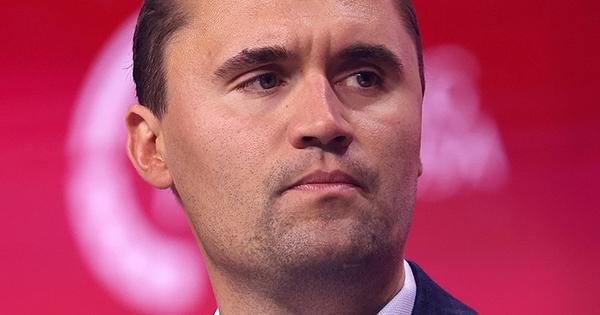Charlie Kirk Did Not Like Black People. He Called MLK “Awful” and George Floyd a “Scumbag”
Nationwide — Charlie Kirk, the 31-year-old conservative activist and Turning Point USA founder who was sh*t and k*lled Wednesday during an appearance at Utah Valley University, repeatedly made remarks that revealed deep hostility toward Black people and toward civil rights progress in America.
In early 2024, Kirk drew heavy backlash for saying, “If I see a Black pilot, I’m going to be like, ‘Boy, I hope he’s qualified.’” He made the comment during a podcast conversation about airline diversity hiring practices, sparking outrage online. Many saw the remark as promoting a harmful stereotype—that Black professionals are inherently less competent—and as a clear example of the racial undertones that defined his commentary. Critics argued it showed exactly how Kirk used race to stoke division among his largely white, conservative audience.
Kirk’s hostility toward the civil rights movement was even more explicit. Though he once praised Martin Luther King Jr., he later reversed course, calling the civil rights leader “awful” and “not a good person.” At a December 2023 event, he declared that the Civil Rights Act of 1964 was a “huge mistake,” claiming it created a permanent bureaucracy designed to push diversity, equity, and inclusion. To his critics, this wasn’t just a policy stance—it was a rejection of one of the most important legal protections for Black Americans in the modern era.
His rhetoric around George Floyd also revealed his disdain. During his 2021 “Exposing Critical Racism” tour, Kirk dismissed Floyd as a “scumbag.” He went further, insisting the public outcry after Floyd’s death was “exaggerated” and driven by “corrupt voices.” These comments drew widespread condemnation and reinforced accusations that Kirk trivialized Black suffering while defending systems that perpetuate racial inequality.
Beyond individuals, Kirk attacked broader concepts like white privilege and equity programs. He repeatedly described “white privilege” as a “myth” and a “racist idea,” insisting that America did not grant advantages to white citizens. He consistently opposed Diversity, Equity, and Inclusion (DEI) programs, claiming they were unfair to white people and undermined meritocracy. For many, these positions were evidence of his refusal to acknowledge the systemic racism that civil rights advocates have spent decades trying to dismantle.
Kirk’s rise through Turning Point USA gave him a powerful platform to promote these views to millions of young conservatives. By framing race-based protections and equity programs as attacks on white America, he built his brand around grievance politics. While supporters saw him as fearless and unapologetic, critics said his comments revealed a consistent pattern: undermining civil rights, mocking Black leaders, and fueling mistrust toward Black professionals. His death has left Republicans without one of their most visible youth organizers, but his record ensures that debates about race, privilege, and civil rights will remain inseparable from his legacy.






